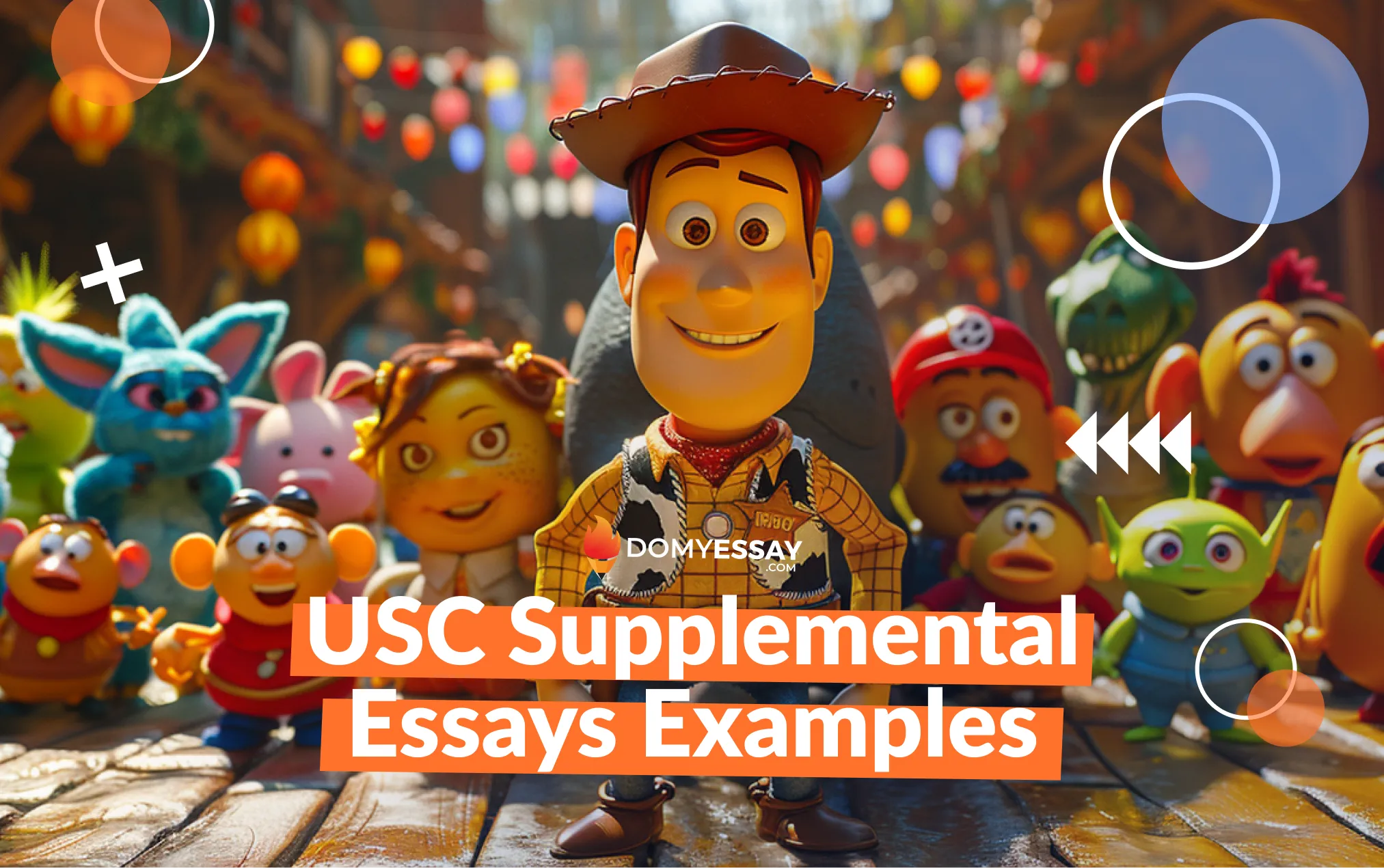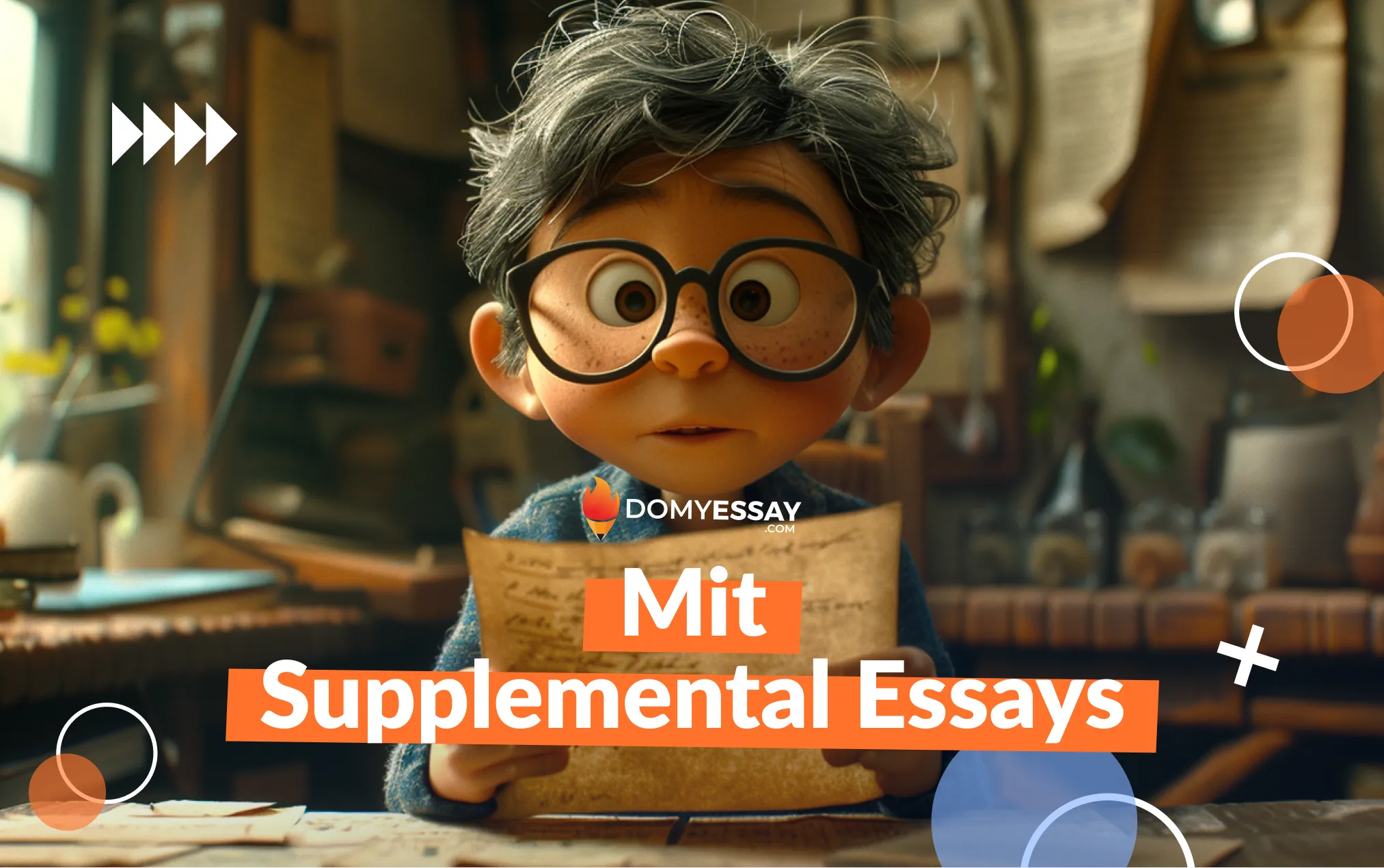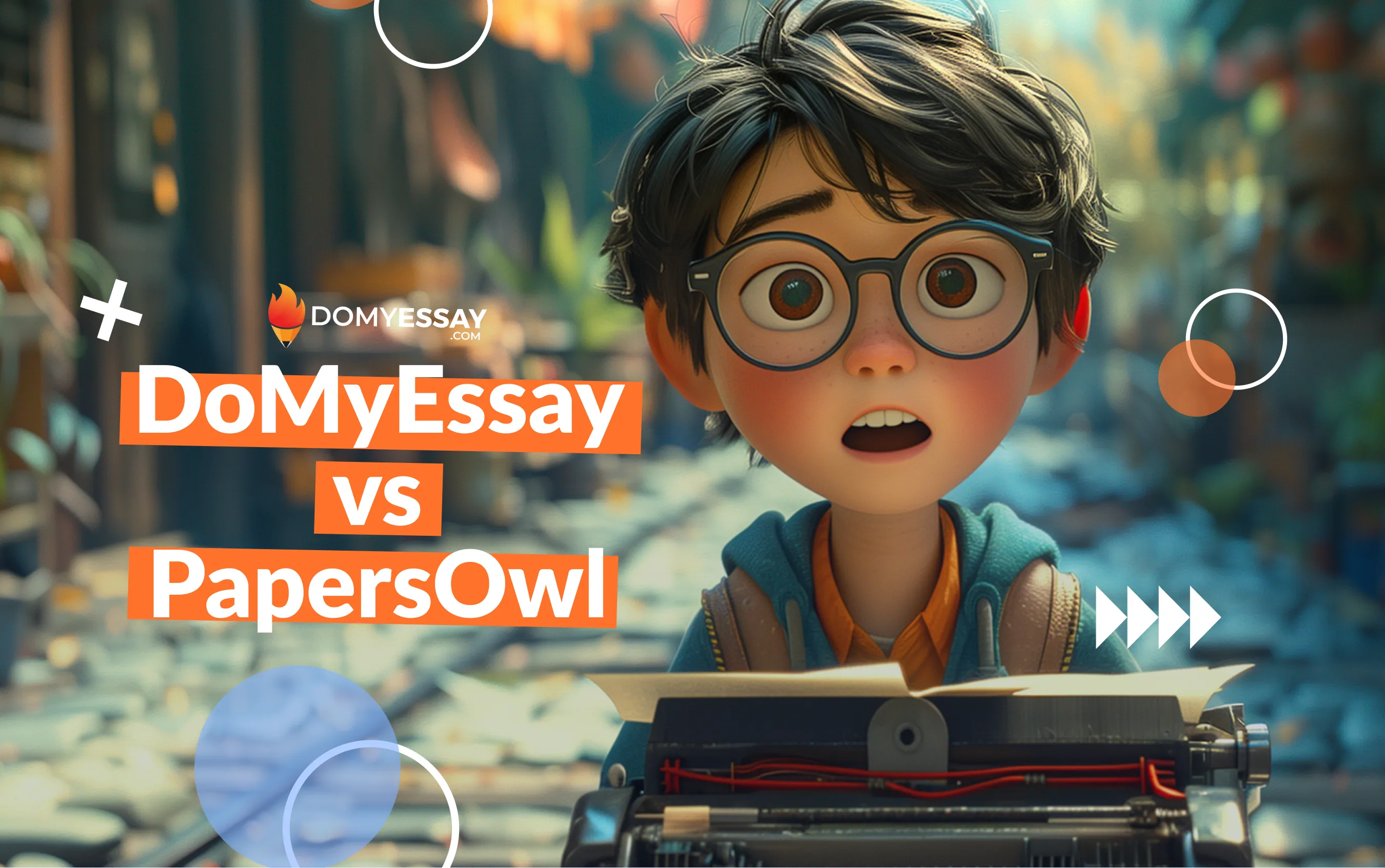Eyeing one of USC’s many programs? Get ready to compete with thousands of aspiring USC students. The University of Southern California admits only around 10% to 15% of freshman applicants, with the figure reaching 11.2% for the year 2025-2026.
Your academic achievements aren’t the only thing that matters. The board also wants to know who you are, what you can bring to the table, and whether you’ll thrive at USC.
This is where supplemental essays come in. They help the board to get to know the person behind the application.
Stressed over it? A real-world successful USC supplemental essay example can help you out. We asked the experts at our personal statement writing service to analyze three of them and share their tips for acing these essays.
Note: Prompts may change from year to year, but the guidelines for writing good USC supplemental essays remain largely the same.
USC Supplemental Essay 101
In addition to the personal statement, the University of Southern California also asks you to answer several other prompts. These answers are known as supplemental essays. Their whole purpose is to get to know you.
All USC supplemental essays can be broken down into two categories: longer essays and short answers. Longer essays are up to 250 words long and typically focus on why you chose USC or this particular major. Short answers are more personality-focused, with the character limit in the ballpark of 25 to 100 characters.
The number of supplemental essays you have to submit depends on the major; you may have to write one or two longer essays. There are 10 short answers and one optional 250-word essay in addition to that. You can answer the optional prompt to explain gaps in your schooling.
Keep in mind that prompts may change with each admission cycle. On top of that, each USC school typically provides its own prompts. So, for example, aspiring engineering undergrads may have to describe which one of the Engineering Grand Challenges speaks to them and why. Future architects, in turn, will have to present their take on architectural design challenges and impacts.
Worried about your supplemental essay?
Let our experts give your draft an extra polish to sway the admissions board’s opinion in your favor — or write one from scratch.
5 Markings of a Strong USC Essay
Before you jump into writing the first iteration of your USC essays, keep in mind: these supplemental essays exist so that the admissions board can get to know you. So, don’t be afraid to let your personality shine through. That’s exactly what these essays are for!
On top of that, steer clear of clichés and repetitions. Supplemental essays are called supplemental because they cover the ground that other parts of the Common App application don’t.
Now, what makes a supplemental essay strong? In our experts’ experience, winning essays:
- Have a compelling narrative that focuses on personal growth or has a clear story arc (e.g, how you realized the importance of critical thinking skills)
- Contain specific details about USC programs, majors, and academic opportunities that appeal to the applicant (e.g., Rocket Propulsion Laboratory, Mind & Society Center)
- Let the applicant’s unique personality and voice shine through, without sounding too much like a list of achievements or a resume
- Showcase an authentic connection to USC’s mission and values
- Are well-structured and organized, with a good attention-grabber (i.e., hook), narrative-driven main body, and a clear conclusion (see our third example below)
3 Winning Essay Examples
Prefer to see what makes for a successful USC supplemental essay in practice? No problem: we’ve gathered three examples that charmed the admissions board and helped applicants get that coveted acceptance letter. Our experts also broke down what you should learn from each example.
Note: These are examples from past admission cycles. So, the prompts you’ll have to answer may differ from the ones used for these essays.
“From Space Films to NASA & Beyond”
Ever since I watched the Antares rocket arc into the sky on a livestream, I’ve been hooked on the idea of sending machines far beyond Earth. Movies like Gattaca and The Martian didn’t just entertain me; they shaped my understanding of how engineering, resilience, and imagination make space exploration possible. That excitement solidified during a middle-school physics summer camp, where building model rockets was the first time I felt the thrill of translating theory into motion. Since then, my goal has been clear: I want to design propulsion systems for NASA.
USC is the ideal place to pursue that ambition. As an Aerospace Engineering major in the Viterbi School of Engineering, I’ll develop the technical foundation in flight mechanics, spacecraft dynamics, and thermodynamics necessary to work on real propulsion challenges. Courses like AME 481: Spacecraft Dynamics and ASTE 470: Introduction to Space Propulsion will give me both breadth and specialization as I work toward my long-term goal.
But what draws me to USC most is the USC Rocket Propulsion Laboratory (RPL). The idea of joining the largest entirely student-run rocket lab in the world and contributing to the next Traveler IV launch excites me more than anything else. RPL’s expectation that undergraduates take on real responsibility aligns perfectly with how I want to learn: by testing designs, troubleshooting failures, and building hardware that actually flies.
With USC’s combination of rigorous academics and hands-on propulsion experience, I know I can turn my fascination with rockets into a career marked by discovery, grit, and exploration.
What worked: As one of the Why USC essay examples, it manages to give a peek into the author’s personal history with the field, mention their long-term career goal, and highlight how USC will help them attain it. It’s a tall order, but the author managed to do all of that without overloading the essay. This essay provides just enough USC-specific details (courses offered, RPL) without sounding too Wikipedia-like about it.
How it’s structured: The essay opens with a short recap of the personal experiences that shaped the applicant’s career aspirations. The following paragraph describes why the applicant chose the major and what they expect to learn during their studies. Then, they highlight what specifically draws them to USC in particular (RPL) and why. The essay ends with a brief conclusion.
Lessons to learn: Don’t hesitate to describe how you got your passion for the field, even if it means citing your favorite movies. It, for a lack of a better word, humanizes you. On top of that, answer clearly why USC appeals to you. Tie it to your long-term career goals if possible. You can focus on one research or hands-on work opportunity you’re excited about and tell the admissions board why you’re interested in it.
“USC: My Ideal Place to Study the Theory of Mind”
From early on, I have been fascinated by how we infer beliefs, desires, and intentions, and how those judgments shape our behavior. At USC, majoring in Cognitive Science at Dornsife would give me the interdisciplinary foundation I need: I would study courses such as Foundations of Cognitive Science and Cognitive Processes, drawing on psychology, philosophy, neuroscience, linguistics, and computer science.
I plan to engage in directed research through USC’s undergraduate research program, working with faculty in the Lab Directory of the Cognitive Science Program. I’m particularly excited by the Center for the Neuroscience of Embodied Cognition, where researchers study how sensorimotor brain regions support social understanding.
Because my second-choice major is Psychology, I would also take advanced electives such as Social Cognition (PSYC 454) and Neural Network Models of Social and Cognitive Processes (PSYC 450). Through these classes, I can investigate the neural mechanisms and models behind how people represent others’ mental states.
I am eager to immerse myself in USC’s Mind & Society Center, a unique community that bridges individual cognition and societal context. I’d love to contribute to its work on how social environments shape thought and decision-making.
By combining coursework, lab experience, and community-based experiments, USC provides the exact environment where I can explore the theory of mind in adults and contribute to the field of social cognition.
What worked: This essay is methodical in describing why the selected USC majors appeal to the applicant. The level of detail and the number of cited opportunities are a clear sign: they have taken their time to study the curricula, school, and program’s specifics.
How it’s structured: The essay’s formula can be broken down roughly as: 1) stating the core academic interest, 2) breaking down the major-specific coursework and research opportunities that allow for pursuing it, and 3) summing it up.
Lessons to learn: Don’t hesitate to cite specific courses in this essay; they show you’ve taken your time to study the university’s offerings. Focus on academia and on-campus opportunities when answering the Why This Major prompt. There’s no place for clichés like “I’ve always wanted to study psychology” or “Your school is the best in innovation.”
“How a Gap Term Taught Me Independence”
During the spring of my sophomore year, my family relocated across the country, which resulted in a temporary gap in my schooling. The move happened quickly due to my father’s transfer, and my new school district did not allow mid-term transfers. Although the timing was unexpected, the circumstances gave me an opportunity to take on responsibilities that shaped my independence and organizational skills.
I played an active role in the move from start to finish. I helped sort and pack our home, catalog items we planned to donate, and manage a yard sale to downsize before the cross-country drive. Handling pricing, coordinating logistics, and speaking with dozens of visitors gave me unexpected lessons in communication and planning. Throughout this period, I also made it a priority to keep my academic skills sharp. I completed online enrichment modules in math and English and continued reading on my own so that I could transition smoothly once I enrolled in my new school.
After we arrived, I assisted with settling in. That involved setting up utilities, organizing the new home, and helping my younger brother adjust to the community. The gap, though unplanned, taught me how to adapt quickly to major change and take responsibility during stressful transitions.
When I officially joined my new school the following fall, I felt more prepared, mature, and focused. The experience reinforced the value of flexibility and initiative, and these skills continue to shape how I approach challenges today.
What worked: This essay responds to one of the optional supplemental essay prompts that let you explain any gaps in your academic record. But it does much more than just explain: the author uses this opportunity to showcase their independence, organizational skills, flexibility, and initiative. Thanks to a storytelling approach, the essay is also compelling to read.
How it’s structured: The whole essay reads like a story. The first paragraph sets the scene, explaining the circumstances behind the gap term and stating the central message of the story. The following two paragraphs highlight the author’s responsibilities during moving in and settling in, respectively. The final paragraph ties the narrative in a bow, reiterating what the experience taught the author and why it’s their strength today.
Lessons to learn: Your term gaps aren’t necessarily a weak point of your application. When addressed properly, they can be an opportunity to highlight what you’ve learned outside the classroom. To that end, focus on the key skills you developed while overcoming a challenge.
6 USC Short Answer Examples
While the short answers section is decidedly less intimidating, nailing it can help you prove that USC is a good fit for your personality (and vice versa). That said, make sure your answers are truly yours; this is where authenticity and originality have to guide your responses.
Here are six USC short answer questions examples, along with why they work. All of them are part of an application for a USC architectural design program:
Advice for Major-Specific Prompts
As we mentioned, USC schools may add extra supplemental essay prompts for you to answer. Some majors may require you to answer one or two extra prompts. These prompts are tied to the school’s values and field of study and research.
Here’s your cheatsheet for tackling these prompts:
How to Ace USC Supplemental Essay: Tips & Pitfalls to Avoid
Ready to start drafting your supplemental essays? Keep these five tips from our experts in mind:
- Take your time to research USC. Cite specific courses and on-campus opportunities that pique your interest.
- Connect your story to the school. While your personality matters, make sure it matches what USC is looking for in its applicants. Each of its schools typically states this on the admissions page.
- Be a storyteller. Don’t hesitate to add a vivid anecdote or two where appropriate. Those anecdotes can speak volumes about you as a person.
- Follow requirements. Don’t go over the maximum word count. Carefully read the prompt to make sure you respond to every part of it.
- Proofread and edit. Much like any college essay, a good supplemental essay is carefully proofread and refined in iterations.
DoMyEssay also routinely helps applicants improve upon their initial drafts. Here are the three most common mistakes our experts see in those drafts:
- Using generic statements like “USC has a great engineering program” or “USC will help me become a successful architect”
- Repeating the information already laid out elsewhere in your application (resume, personal statement, etc.)
- Going over the maximum word count (your response will be dismissed)
Don’t want to take chances with your essays?
Submit your college application with peace of mind with DoMyEssay’s help. We’ll help you craft a winning personal statement, supplemental essay, or another response based on your input.
In Closing
Supplemental essays may sound like a lower-priority task, but they give the admissions board a better understanding of who you are. So, don’t overlook this chance to make your application stand out.
At the same time, make sure you don’t abuse this chance to just repeat your many accomplishments. Instead, focus on any extra insight into your personality that says: you belong at USC.
Whenever you find yourself in doubt or struggling with writing the supplemental essays, revisit our examples above. But keep in mind that they’re only examples. Your essays should showcase your unique skills, passions, aspirations, and goals.
So, use these examples for inspiration, but don’t copy them. Remember: it’s your one-of-a-kind voice that has to shine through these essays.
- What not to do in your USC application. (2025, August 27). USC Undergraduate Admission Blog. https://www.admissionblog.usc.edu/p/what-not-to-do-in-your-usc-application
- What we look for. (2025, September 30). Undergraduate Admission. https://admission.usc.edu/prospective-students/how-to-apply/what-we-look-for/
- Tips for the Major-Specific writing supplements. (2022, October 7). USC Undergraduate Admission Blog. https://www.admissionblog.usc.edu/p/tips-for-the-major-specific-writing
- Facts and Stats - USC. (2025, October 30). USC. https://www.usc.edu/we-are-usc/the-university/facts-and-stats/


.webp)

